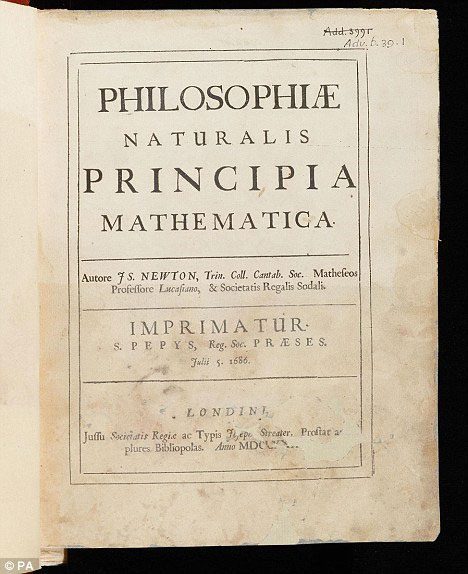Those interested in the mathematical theories of motion and gravity by scientist Isaac Newton can access the website of the University of Cambridge (UK).
>>> Image: The first handwritten mathematical manuscript of Isaac Newton
The University of Cambridge (UK) has recently published over 4,000 pages of handwritten manuscripts by the great scientist Isaac Newton on its new digital library website, detailing his significant discoveries regarding the principles of motion and gravity.
Remarkably, these thousands of manuscripts are annotated copies concerning the fundamental principles of mathematics and handwritten notes on his earliest and most famous theories, which hold great value in our lives.

4,000 pages of Newton’s handwritten manuscripts have been published on
the University of Cambridge library website. (Photo: Dailymail)
His treatise on Philosophiæ Naturalis Principia Mathematica (Mathematical Principles of Natural Philosophy), first published in July 1867, describes universal gravitation and is regarded as the foundation of classical mechanics, which dominated the understanding of physics and science for the next three centuries. This work is considered one of the most important contributions by Newton in the history of science.
In the near future, the University of Cambridge library plans to upload over 1,000 pages covering the entire “collection” of Newton’s theories on gravity and motion for anyone interested in learning and downloading.
The electronic library of the University of Cambridge (http://cudl.lib.cam.ac.uk) began operating in 2010 with a collection of images of Newton.
More than 200 pages are preserved daily, including works by renowned scientists such as Charles Darwin and Ernest Rutherford, which are uploaded to the library’s website.
Anne Jarvis, the library manager at the University of Cambridge, stated: “The collections at the University of Cambridge have grown significantly, from just a few dozen books initially to one of the largest libraries in the world, with numerous rare books, maps, manuscripts, and periodicals.”
Additionally, the University of Cambridge library is launching a campaign to collect the most important handwritten manuscripts and paper documents in the history of science.


















































